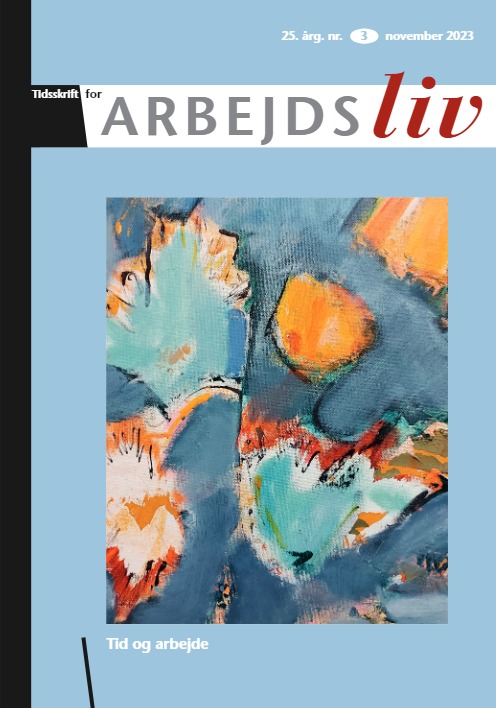Registration of time and teaching in University Colleges in Denmark
Keywords:
Tidsregistrering, Simulacre, Performative effekter, Temporal autonomi, ProfessionshøjskolerAbstract
In 2013 the university colleges in Denmark were supposed to implement a new paradigm regarding working hours, and simultaneously a time registration system was introduced. I will explore the performative effects of the system and the implications on the employees’ working life, based on policy documents from 2013 and interviews with five employees and a manager, 10 years after the new system was introduced. I will analyze the time registration system as an object of time, shaping and being shaped by power struggles. It will turn out that there are at least 3 different principles according to which the employees register their time (1) actual time, 2) allocated time, or 3) 7,4). It also turns out that the power struggles are far from over but have moved from open collective negotiations to local and more or less secret power struggles, leaving the employees somewhat bewildered about how their work is measured. Are they supposed to do a certain number of tasks, be present a certain amount of time, or are they required to take on a responsibility, irrespective of the time and tasks it requires? The answer is that managers can shift between the three principles – and so can the employees. The employees use at least three different principles when registrating time: actual working hours, budgeted working hours, or 7.4 hours per day.
Downloads
Published
How to Cite
Issue
Section
License
Copyright (c) 2023 Forfatteren og tidsskriftet i samarbejde

This work is licensed under a Creative Commons Attribution-NonCommercial 4.0 International License.
Forfattere, der publicerer deres værker via dette tidsskrift, accepterer følgende vilkår:
- Forfattere bevarer deres ophavsret og giver tidsskriftet ret til første publicering, samtidigt med at værket ét år efter publiceringen er omfattet af en Creative Commons Attribution-licens, der giver andre ret til at dele værket med en anerkendelse af værkets forfatter og første publicering i nærværende tidsskrift.
- Forfattere kan indgå flere separate kontraktlige aftaler om ikke-eksklusiv distribution af tidsskriftets publicerede version af værket (f.eks. sende det til et institutionslager eller udgive det i en bog), med en anerkendelse af værkets første publicering i nærværende tidsskrift.
- Forfattere har ret til og opfordres til at publicere deres værker online (f.eks. i institutionslagre eller på deres websted) forud for og under manuskriptprocessen, da dette kan føre til produktive udvekslinger, samt tidligere og større citater fra publicerede værker (se The Effect of Open Access).





